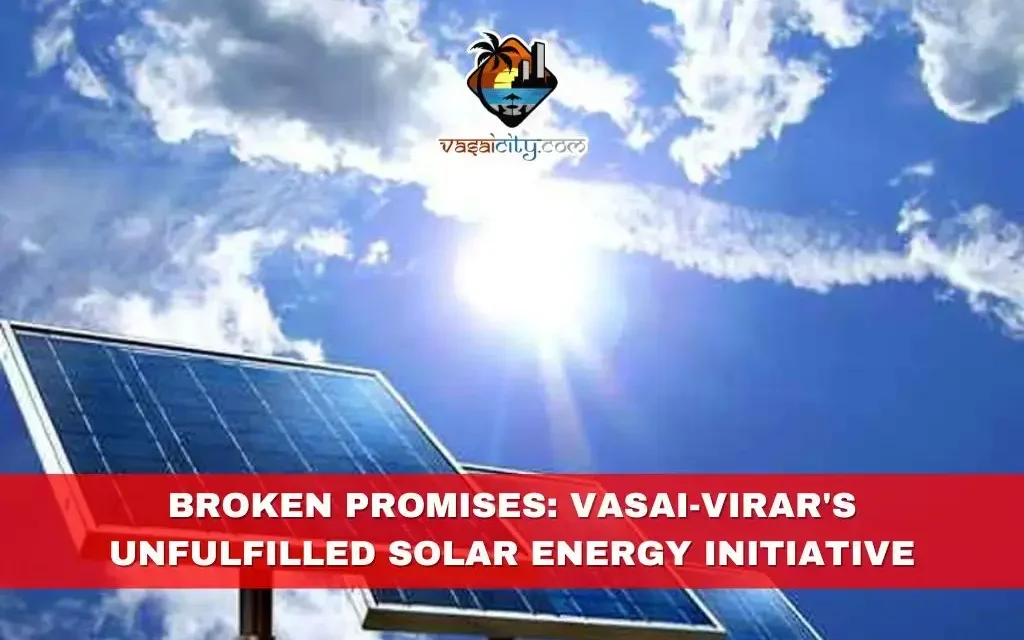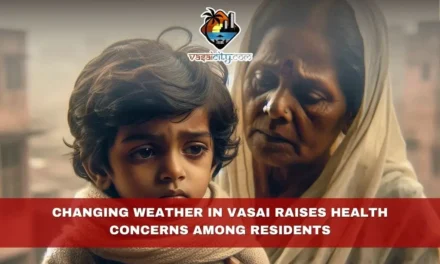In 2017, the municipal government of Vasai-Virar announced an encouraging initiative designed to promote the use of solar energy among its citizens. The plan promised to offer tax relief and subsidies for those who installed solar energy systems in their properties. However, six years down the line, this well-intended initiative appears to have remained solely on paper, with not a single resident receiving the promised benefits.
The primary goal behind the scheme was to encourage the adoption of alternative energy sources, thereby contributing to environmental conservation. To make citizens aware of the potential benefits, the municipality started publishing details of the solar energy subsidy scheme on the back of property tax receipts beginning in the fiscal year 2017-2018. Despite such publicity efforts, actual implementation has been lacking.
Dilip Raut, a senior citizen from Naigaon, has been running from pillar to post trying to avail himself of the solar energy project subsidy since 2018. After installing a solar energy system at his home, Raut submitted an application for the subsidy. Unfortunately, his journey through the bureaucratic maze has been fraught with delays and excuses. Various departments within the municipality gave multiple reasons to defer his request, ranging from missing files to unavailable officers, and he was repeatedly told to wait or meet different officials.
During the pandemic years, the situation grew even more complicated, stalling many administrative processes, including Raut’s subsidy application. Even after Anil Kumar Pawar’s appointment at the municipality led to renewed efforts by Raut, his case simply bounced from one department to another—including the survey, electrical, legal, and audit departments. A decisive action seemed perpetually on the horizon but never actualized.
The local authorities did finally transfer the decision-making power to the deputy commissioner’s office, and official notices were issued concerning the subsidy. However, these too failed to prompt action, and decisions continued to be postponed, leaving Raut and potentially many others in a state of unending uncertainty.
When questioned about the delays and the failure to disburse subsidies, a municipal officer explained that the financial landscape had changed since the scheme was initially approved in 2017. According to this official, providing subsidies under the scheme was no longer economically feasible. However, they mentioned that giving tax relief on property taxes was still a possibility.
This bureaucratic inertia and lack of follow-through have serious implications. Despite clear resolutions passed in municipal assemblies that should ensure the execution of these subsidies, the absence of any real action speaks volumes about the challenges in local governance. The process described by Raut highlights a pattern of avoidance and lack of accountability among various municipal departments.
Citizens like Raut, who took proactive steps towards embracing renewable energy, are left feeling frustrated and ignored. This scenario not only discourages others from adopting green technologies but also questions the effectiveness and sincerity of government environmental policies.
Moreover, this situation has broader implications for environmental policy implementation at the local level. If initiatives that are meant to encourage sustainable practices are not supported adequately, it undermines public trust in such programs and limits the community’s engagement in environmental conservation efforts.
The residents of Vasai-Virar, like many around the world, are becoming increasingly aware of the need for sustainable living practices. However, the success of any environmental initiative depends heavily on the support structures that are put in place to facilitate such transitions. In the case of Vasai-Virar, it seems the support structure is more a facade, lacking the necessary commitment to make the promised changes a reality.
This story of a promising environmental policy that fails in its implementation is not unique to this municipality. It serves as a cautionary tale for similar initiatives globally. It highlights the need for transparency, accountability, and genuine commitment from all levels of government to ensure that the green promises made to citizens are not just empty words but are followed by action that leads to tangible benefits. For now, citizens like Raut wait, hoping for a change that might bring about not only the promised financial benefits but also contribute to a healthier planet.










